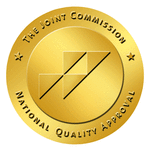
When we are in recovery, especially early recovery, it may sometimes seem as if we have to settle for something less than what we want. This may be due to self-imposed constraints or arise from a feeling that we need to punish ourselves for our past misdeeds, but whatever the reason, if we find ourselves settling instead of ardently pursuing our dreams, we are doing ourselves and our recovery a tremendous disservice.
Boiling it down to the simplest terms, nothing done halfway or halfhearted is every going to represent the best that we can do. On the other hand, it may be that we are only capable of going to a certain point, lacking sufficient knowledge or expertise or practice. But these are things that we can remedy, given time and motivation. The question is: do we have the sincere desire to keep pushing forward? This is really at the crux of the matter, for simply going through the motions isn’t being sincere. It is also not a very good demonstration of commitment to our sobriety.
Why do we put up roadblocks to impede our progress? That’s probably a question best discussed with our therapist, for there could be many and varied deep-seated reasons why we consciously or subconsciously seek to sabotage our efforts. Suffice to say that if we recognize we’re doing this, there are things that we can do to overcome it. So, recognition of what we’re doing to ourselves is the first step.
What’s next, assuming that we are somehow doing less than our best and not really knowing the reason for it? We can try examining what’s been going on with us recently, noting any significant changes, either positive or negative, that may be contributing factors to our seeming inability to get going with the work of recovery. Not everyone requires the assistance of a professional therapist to single out issues and problems that have temporarily waylaid us and caused us to slack off on our efforts. We know, or can figure out, much of what’s ailing us if we give ourselves the time and make an effort to do so.
Perhaps it’s a medical condition or an illness that, while not life-threatening, saps us of energy for a time. The remedy here is to get better, to heal so that we’re physically able to get back to work on our recovery goals. It could be that we’re overcome by assignments and duties at work, home or school and feel drained and stressed at not being able to meet deadlines or turn in our best work. Maybe separating the whole into parts will make it more tolerable and easier to tackle. Ask for assistance if it is reasonable and necessary, but don’t suffer in silence. This will just allow the stress and tension to build up and cause even further delay.
Suppose we attack problems and issues and seek to overcome difficulties and challenges with everything we’ve got – and we still come up short? Where’s the success in that? The reality is, as we should be somewhat aware by now, that we learn by doing. Not everything we do will result in an immediate success/ But this does not mean that we’ve failed. It simply means that we’re in the process of working through the problem, issue, or difficulty or task at hand.
In addition, if we are paying attention and carefully analyze what we did, we’ll learn something that can help us continue the effort, refining and revising our approach as necessary.
So, let’s say that we give it all that we’ve got. We do our best at everything we seek to do each day. What’s the result likely to be? Frankly, the sky’s the limit. Or, rather, the only limit is the one that we impose upon ourselves. If we take action and achieve the outcome or goal that we’ve been working toward, there should always be another goal beyond that we can then begin to tackle. If not, we’ve got some decision-making to do, crafting new goals and broadening our horizon to encompass a greater world view.
There’s no question that we’ll branch out from our present surroundings and look to opportunities that present themselves to us as we continue to make progress in recovery. And, since our recovery is a lifelong process, there will always be opportunity for achieving many more goals than we can even begin to imagine today.
While achievement of success may not have been much in our history recently, there’s always today to begin putting solid accomplishments on our ledger. Be advised that we will start to feel better about ourselves and our capabilities with each new goal that we achieve. Like a newly planted tree that takes root when given sufficient water, sunshine and is planted in good soil, we will be strengthened, feel more confident, and enthusiastically seek to grow even more.
Getting to this point may take some time, but time is what we’ve got. In fact, living in the present, savoring our new life in sobriety and all the opportunity and promise that it holds, should give us sufficient motivation to get busy today. Act, and do so with enthusiasm and commitment. The results we obtain will fuel us to do even more. In fact, what we can accomplish when we put our minds and our backs to is, will be nothing short of amazing.




 RSS Feed
RSS Feed
